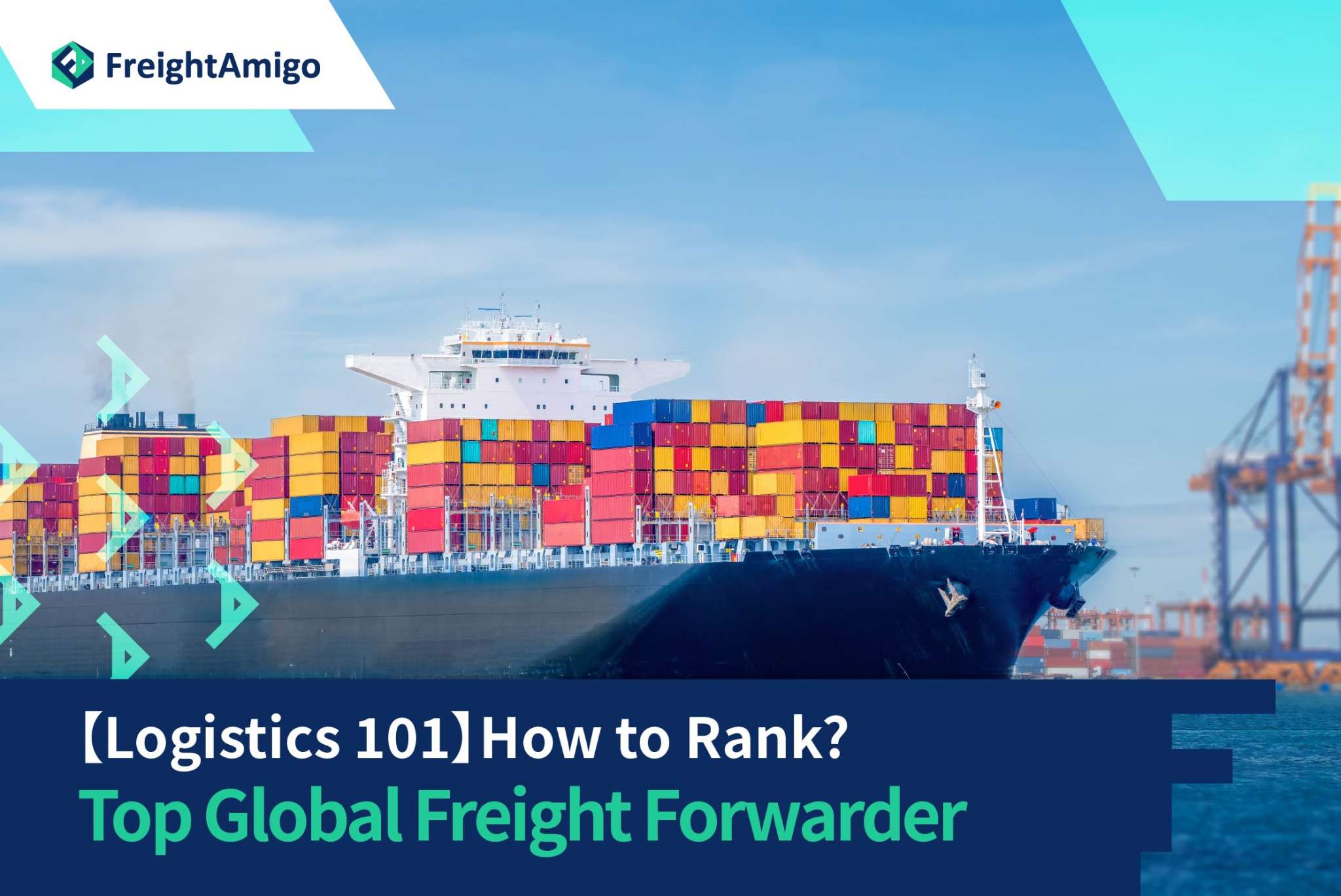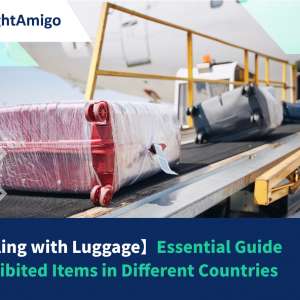Author Name: Tiffany Lee – Marketing Analyst at FreightAmigo
If you’re involved in the logistics industry or you’re a business owner who needs to ship products globally, you might be wondering which freight forwarders are the best in the business. Luckily, FreightAmigo has compiled a list of the top freight forwarders in the world based on their annual revenue.
Want To Compare The Best Express, Air Freight, Sea Freight, Rail Freight & Trucking Rates So As To Have Better Control On Cost?
Definition of Freight Forwarder
A freight forwarder is a company or an individual that arranges and organizes the transportation of goods from one place to another on behalf of a client. Freight forwarders act as intermediaries between clients and transportation carriers, such as airlines, shipping lines, trucking companies, and rail operators. They handle a wide range of logistics services, including customs clearance, documentation, insurance, and warehousing.
2023 Freight Forwarder Ranking
These companies are known for their high-quality logistics services, including air freight, ocean freight, road freight, and rail freight. They also have a strong global presence and can handle shipments to and from virtually any location in the world.
1st – DHL Supply Chain & Global Forwarding is the largest freight forwarder in the world, with an estimated annual revenue of over $21 billion. The company offers a wide range of logistics services, including air and ocean freight, customs brokerage, warehousing, and distribution. With its extensive global network and commitment to innovation, DHL is a top choice for businesses of all sizes.
2nd – Kuehne + Nagel is the second-largest freight forwarder in the world, with an estimated annual revenue of over $20 billion. The company has a strong presence in Europe and Asia and offers a range of logistics services, including air and ocean freight, contract logistics, and integrated logistics solutions. Kuehne + Nagel is known for its commitment to sustainability and its innovative approach to logistics.
3rd – DB Schenker is the third-largest freight forwarder in the world, with an estimated annual revenue of over $18 billion. The company has a strong presence in Europe and Asia and offers a range of logistics services, including air and ocean freight, contract logistics, and supply chain management. With over 140 years of experience in the logistics industry, DB Schenker is known for its expertise and reliability.
4th – Sinotrans is the fourth-largest freight forwarder in the world, with an estimated annual revenue of over $10 billion. The company has a strong presence in China and offers a range of logistics services, including air and ocean freight, customs brokerage, warehousing, and distribution. Sinotrans is known for its commitment to quality and its ability to provide customized logistics solutions to clients.
5th – DSV Panalpina is the fifth-largest freight forwarder in the world, with an estimated annual revenue of over $9 billion. The company has a strong presence in Europe and offers a range of logistics services, including air and ocean freight, contract logistics, and supply chain management. DSV Panalpina is known for its innovative approach to logistics and its ability to provide clients with customized solutions to meet their specific needs.
Important Factors to Consider When Choosing a Freight Forwarder
-Expertise in the Industry
What industries and businesses does the company cater to? Are there any specific areas or niches that the company specializes in?
-Location
Where is the company based? In how many locations and countries does it operate? Does it provide services in all the countries that you trade with?
-Services Offered
What are the solutions provided by the company? Are there any additional services provided? What is the company’s area of expertise in terms of services offered?
-Track Record
What is the feedback from experienced customers about this freight forwarder? Is the company known for timely delivery, or are there frequent delays? How does the company handle customer support?
-Operations Scale and Capacity
Does the company have the resources and infrastructure to handle your shipping requirements and freight volume? What is the company’s annual capacity in terms of ocean TEUs and air metric tons that it can handle?
Differences Between a Traditional and Digitized Freight Forwarder
-Customer Communication
Traditional freight forwarders typically rely on phone calls to communicate with their clients and contract companies. In contrast, digital freight forwarders recognize that people expect prompt responses and don’t want to wait for extended periods to receive a reply.
This is why most digital freight forwarders provide online chat and other contact information. This improves communication flow and enables customers to receive answers to their queries in a shorter timeframe. Even complex questions can be answered relatively quickly due to the digital freight forwarders’ online presence.
Customers want fast shipping, accurate shipping quotes, and information about the delivery timeframe. Digital freight forwarders provide instant answers, whereas with traditional freight forwarders, customers have to call them, and the freight forwarders then have to determine the fastest and most cost-effective methods, resulting in longer wait times.
-Real-Time Tracking
Customers also want to be able to track their packages online in real-time, without having to contact the shipper and wait for them to search for their items. Traditional freight forwarders have struggled to provide customers with this service, but digital freight forwarders offer real-time tracking options, providing customers with greater visibility and peace of mind.
-Record-Keeping
Documentation is another area where traditional freight forwarding services have faced challenges. Traditional freight forwarders may have to search through several emails to find the correct documentation for each shipment, which can cause delays in obtaining information. In contrast, digital freight forwarders can instantly share the required documentation for every freight on their platform, streamlining the process and reducing the risk of errors or complications.
Want To Compare The Best Express, Air Freight, Sea Freight, Rail Freight & Trucking Rates So As To Have Better Control On Cost?
While traditional and digitized freight forwarders do the same thing, they do them very differently; if you want to know where your freight is at all times as well as save money and optimize your business you want to go with a company that uses the latest FreighTech & FinTech. If you have any inquiries on digitizing international trade, feel free to contact FreightAmigo now:
Chat with us online OR
Phone / WhatsApp: +852 27467839









































